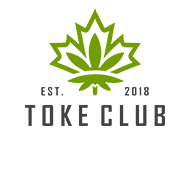Cannabis
Understanding the Legal Age to Buy Cannabis in Canada
In October 2018, Canada became the second country in the world to legalize recreational cannabis nationwide. Since then, Canadians have had the ability to legally purchase and consume cannabis, but it’s important to understand that there are strict regulations in place regarding who can buy it and where. One of the key regulations involves the legal age to buy cannabis, which varies depending on the province or territory.
This blog post will explain the legal age to buy cannabis across different regions of Canada, why these age limits exist, and what the rules mean for consumers.
Legal Age to Buy Cannabis by Province and Territory
While cannabis is legalized at the federal level, the Cannabis Act allows each province and territory to set its own minimum legal age for purchasing, possessing, and consuming cannabis. Most provinces have aligned the legal age with the age for purchasing alcohol and tobacco, but there are some differences.
Here’s a breakdown of the legal age to buy cannabis in each region of Canada:
- Alberta: 18
- Quebec: 21
- British Columbia: 19
- Ontario: 19
- Manitoba: 19
- Saskatchewan: 19
- Newfoundland and Labrador: 19
- New Brunswick: 19
- Nova Scotia: 19
- Prince Edward Island: 19
- Yukon: 19
- Northwest Territories: 19
- Nunavut: 19
As you can see, Alberta has the lowest minimum legal age at 18, while Quebec has set the highest minimum age at 21. In all other provinces and territories, the legal age is 19.
Why the Legal Age Varies
The federal government originally set the minimum age to purchase and consume cannabis at 18 in the Cannabis Act, but it gave provinces and territories the power to raise the minimum age if they wished. This flexibility allows each region to account for cultural differences, public health priorities, and political considerations.
For example:
- Alberta chose 18 to align with the legal age for alcohol and tobacco, believing it would be easier to enforce and educate the public with consistent laws.
- Quebec initially set its legal age at 18 but raised it to 21 in 2020, citing concerns over the impact of cannabis on young people’s brain development.
These differences reflect each province’s approach to balancing public health concerns with the desire to provide legal access to cannabis.
Why Legal Age Matters
The legal age to buy cannabis is primarily set to protect young people from the potential harms of early cannabis use. Scientific research suggests that the human brain continues to develop until about age 25, and regular cannabis use during adolescence can negatively affect brain development, including memory, attention, and decision-making skills.
By setting a minimum legal age, governments aim to:
- Reduce access to cannabis among youth.
- Limit exposure to the potential negative effects on cognitive development.
- Encourage responsible use among adults.
In provinces where the legal age is higher (such as Quebec), the intent is to further protect young adults who may still be vulnerable to the effects of cannabis. However, some argue that setting the age too high could encourage illegal sales, as younger adults may turn to the black market if they cannot purchase cannabis legally.
Buying Cannabis Legally in Canada
In addition to the legal age requirement, there are specific rules for how cannabis can be purchased. Cannabis is sold through licensed retail stores and online stores, which are regulated by the provincial or territorial governments. For example, in Ontario, the Ontario Cannabis Store (OCS) operates both online and as a wholesaler for private retail outlets.
To purchase cannabis:
- You must present valid government-issued ID to prove your age.
- Retailers are required to refuse sales to anyone under the legal age.
- Adults can buy dried flower, pre-rolls, edibles, oils, concentrates, and other cannabis products in these licensed stores.
Penalties for Underage Cannabis Use
It’s important to note that consuming or purchasing cannabis under the legal age is illegal and can carry penalties. Although specific penalties vary by province, consequences can include:
- Fines for possession of cannabis by a minor.
- Seizure of the cannabis.
- In some cases, youth may be required to attend drug education programs.
For those caught selling or providing cannabis to underage individuals, penalties are far more severe. Under the Cannabis Act, adults who provide cannabis to minors could face fines or even criminal charges, including up to 14 years in prison.
Public Education and Awareness
Since cannabis legalization, governments across Canada have invested in public education campaigns to raise awareness about the rules around legal consumption. These campaigns emphasize:
- The importance of purchasing from legal sources.
- The risks of underage cannabis use.
- How to store cannabis safely to prevent access by minors.
By promoting responsible use and educating the public, these campaigns aim to reduce youth access and ensure that legalization achieves its intended public health and safety goals.
In conclusion
The legal age to buy cannabis in Canada varies depending on where you live, with most provinces and territories setting the minimum age at 19. The goal behind these age restrictions is to protect young people from the potential harms of cannabis use while providing adults with legal, regulated access to cannabis products. As cannabis continues to evolve in Canada, it’s essential to stay informed about the rules and ensure responsible consumption in accordance with the law.
If you’re of legal age and interested in purchasing cannabis, make sure to buy from licensed retailers and always consume responsibly.

